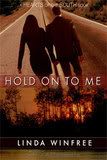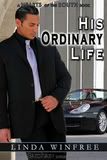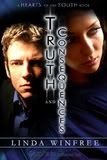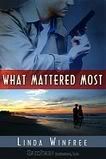Digging Deeper
On her personal blog last week, Joan asked about the study of craft. My reply was that I study the craft of other writers (I'm an English teacher -- studying the craft is my job), but not by taking online courses, reading craft books (okay, I have a couple -- Stephen King's On Writing and one called Fiction First Aid; Strunk and White's Elements sits on my desk at all times), and attending workshops.
So how do I study craft?
I read.
I know that sounds simplistic, but as an English major, I learned that I'd never be able to approach a text simply as a reader. I learned to dig, to search for "hidden" meaning, to look at overall meaning by studying the author's style. Hence, when I read, I take everything apart -- poetry, short stories, novels, nonfiction -- everything.
Take for example, my current teaching unit: poetry. I'm teaching kids to write poetry, we're talking about poetic devices, and we're reading a wide array of poetry as well as The Odyssey. We're using Robert Fitzgerald's translation of Homer's epic, and the diction is interesting. In one book of the epic poem, Odysseus goes to "Circe's flawless bed of love." Think about that word choice. No paragraphs telling us or showing us what happened there . . . just the idea that her bed is flawless. Fitzgerald's translation includes many examples of such resonant word choices.
One idea I keep coming back to this week with my juniors is the concept that in the Modern period (which some critics still maintain we're writing in -- others refer to our period as the post-Modern, post-post-Modern, or even the contemporary period) what the the poets and authors didn't say was as important as what they did. It's an interesting idea, one I'm still trying to master through the use of subtext and layers.
So, the gist is that my study of craft comes from, well, the study of individual authors' craft. I'm always reading; therefore, I'm always learning.
What's the most important concept you've learned from reading another author's work?
So how do I study craft?
I read.
I know that sounds simplistic, but as an English major, I learned that I'd never be able to approach a text simply as a reader. I learned to dig, to search for "hidden" meaning, to look at overall meaning by studying the author's style. Hence, when I read, I take everything apart -- poetry, short stories, novels, nonfiction -- everything.
Take for example, my current teaching unit: poetry. I'm teaching kids to write poetry, we're talking about poetic devices, and we're reading a wide array of poetry as well as The Odyssey. We're using Robert Fitzgerald's translation of Homer's epic, and the diction is interesting. In one book of the epic poem, Odysseus goes to "Circe's flawless bed of love." Think about that word choice. No paragraphs telling us or showing us what happened there . . . just the idea that her bed is flawless. Fitzgerald's translation includes many examples of such resonant word choices.
One idea I keep coming back to this week with my juniors is the concept that in the Modern period (which some critics still maintain we're writing in -- others refer to our period as the post-Modern, post-post-Modern, or even the contemporary period) what the the poets and authors didn't say was as important as what they did. It's an interesting idea, one I'm still trying to master through the use of subtext and layers.
So, the gist is that my study of craft comes from, well, the study of individual authors' craft. I'm always reading; therefore, I'm always learning.
What's the most important concept you've learned from reading another author's work?
Labels: Linda's Posts







2Comments:
Ah, I see what you mean.
But somewhere before the reading and analyzing you do now, there must have been the instruction of craft -- in college I'm suspecting since you're an English teacher. :-)
I didn't get that in college. I took the required English courses and never went beyond. So ideas like pulling apart diction and prose and poetry, etc. not only would be beyond my ability, they wouldn't even enter my mind as "good" things to do.
Instead of the idea that you don't study craft, I think it's more accurate to say you're way ahead of the curve on knowledge in that area and are now able to apply your knowledge to the writing that you read. A step beyond those of us still trying to figure out all those mysterious elements of craft.
Oh, yeah, definitely college. It was this wicked course called "Research and Criticism." I remember having to do in-class explications of poetry. I was good at it, for some reason.
Then there was the Modern British Novel, British Poetry, Chaucer (yes, I took an entire course just on Chaucer!), the American Novel . . . and I'm sure there are many others I don't remember now.
Now I get to torture teenagers by making them look beneath the surface on everything they read. Bwa-ha-ha-ha!
Hey, maybe we need a course on "Research and Criticism" here! We can look at the layers of time imagery in "I Stand Here Ironing" or the use of symbolism in "Once Upon a Summer." I can do the diction and syntax stuff I do with my high schoolers (the syntax stuff always blows them away once they see how writers use patterns of sentence structure to achieve certain effects).
Post a Comment
<< Home